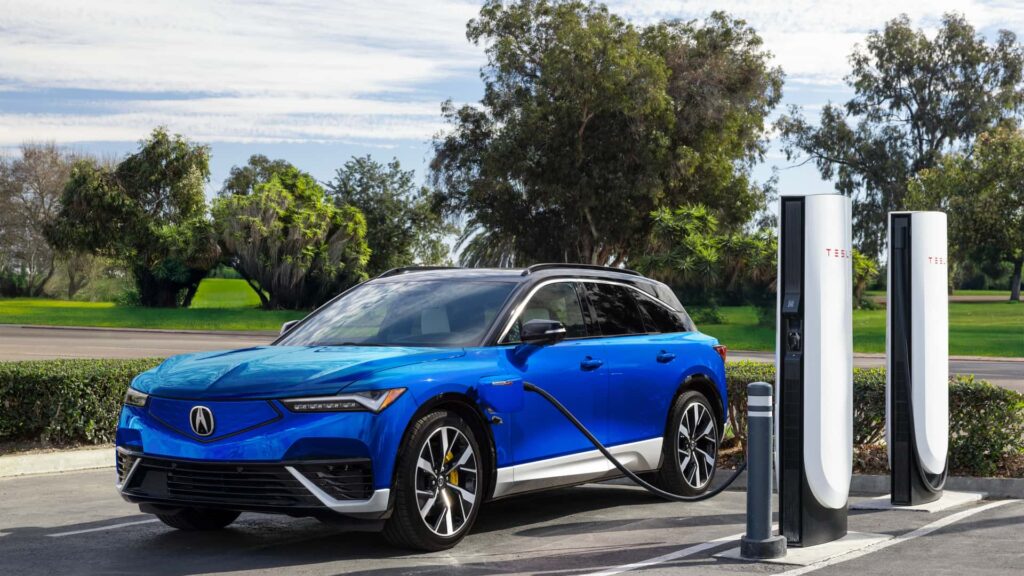Acura has recently made the decision to halt production of the ZDX SUV, which was the brand’s only electric vehicle offering in the United States. This move comes just before the expiration of the EV tax credit, which is expected to have a negative impact on the demand for electric vehicles.
In a statement to InsideEVs, Honda spokesperson Chris Naughton confirmed the end of production for the Acura ZDX, citing the need to align their product portfolio with market conditions and long-term strategic goals. While the ZDX has played a valuable role for the Acura brand, it seems that the current market dynamics have led to this decision.
The timing of this production stoppage is significant, as it coincides with the impending expiration of the federal EV tax credit on September 30. This policy change is expected to result in higher prices for electric vehicles, potentially leading to a decrease in demand. Additionally, factors such as tariffs and the relaxation of emissions regulations are also contributing to a challenging environment for EV manufacturers.
Acura is not alone in facing these challenges, as other automakers have also been scaling back their electric vehicle production. Ram recently canceled its electric pickup truck, while General Motors is adjusting production plans for the Chevrolet Bolt EV. Nissan has also put the Ariya on hold for the 2026 model year, reflecting the broader slowdown in the EV market.
Despite the discontinuation of the ZDX, Honda and Acura have plans to introduce more electric vehicles in the future. The upcoming Acura RSX, a smaller EV crossover built in Ohio, is slated to begin production in the latter half of 2026. While it remains unclear whether there will be a next generation of the ZDX, it is evident that Honda is committed to expanding its EV lineup.
As the EV market continues to evolve, automakers will need to navigate changing market conditions and customer preferences. The end of the federal EV tax credit and other regulatory changes are reshaping the landscape for electric vehicles, prompting manufacturers to rethink their strategies. Despite these challenges, the shift towards electric mobility is inevitable, and companies like Acura are positioning themselves for success in the evolving automotive industry.

